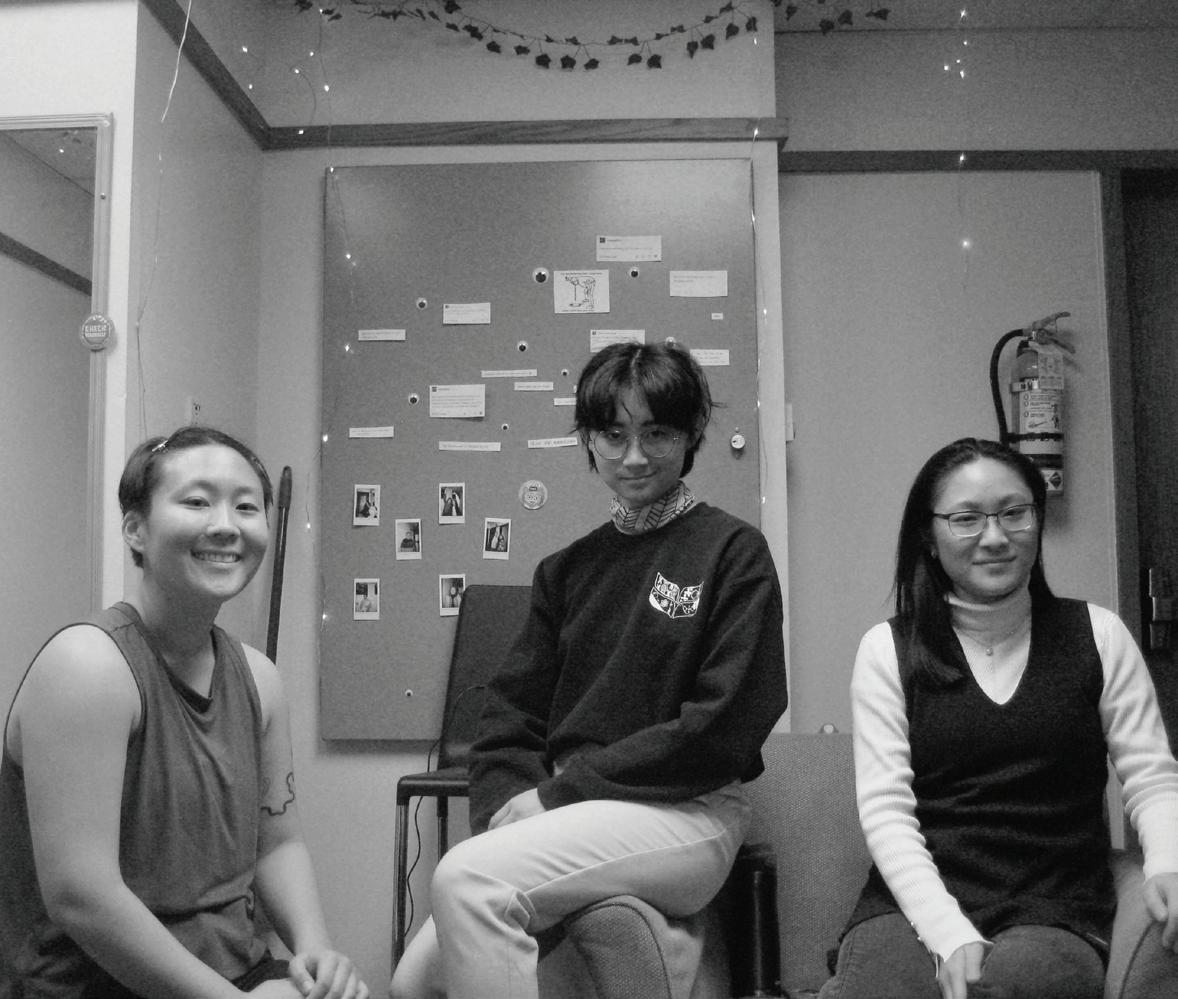
2 minute read
New requirements pose threat to project houses

By Kailee Shermak shermakk@grinnell.edu
Advertisement
Project house residents had to justify by Friday, Feb. 24 to Residence Life why the project house they live in needs to exist.
The new application must include a one-to-two-page description of their house goals, a 10-to-15- minute audio-visual presentation, and an interview with Residence Life. All of these requirements were due on Friday, Feb. 24, two months earlier than in previous years.
Dennis Perkins, assistant dean of residence life & student conduct, told house residents about the application deadline in a Feb. 3 email.
Phil Tyne `24, a resident of Farm House, and Marisa Goffman `24, a resident of GAME House, said they both received an email from Perkins detailing renewal requirements for their respective project houses, requirements that they had not seen before.
Perkins said the process is consistent with previous years. Each year, current students living in these project houses must decide whether to apply to renew their house or not. Based on these presentations, Residence Life awards certain houses to
Office of Admissions braces for impact of predicted end of affirmatice action
By Zach Spindler-Krage spindler@grinnell.edu
Grinnell College is weighing potential changes in admissions practices in anticipation of the likely end of affirmative action. In October 2022, the U.S. Supreme Court heard two cases (Students for Fair Admissions v. Presidents and Fellows of Harvard and Students for Fair Admissions v. University of North Carolina) that threaten the use of race-conscious admissions practices.
Students for Fair Admissions (SSFA) argued in separate cases against Harvard University and the University of North Carolina that race should not be a factor in admissions for private or public institutions of higher education. SSFA claims that the consideration of race creates a de facto quota system that violates Title VI of the Civil Rights Act of 1964, which prohibits discrimination on the basis of race, color or national origin in any program that receives federal funds.
Although the court’s official decision and legal reasoning are unlikely to be released until June, Grinnell faculty and staff are progressing under the pre- sumption that race-conscious admissions practices will be struck down. The College is planning its response, which includes the development of alternative admissions strategies that sustain campus diversity.


The constitutionality of affirmative action
In 1978, the Supreme Court’s decision in Regents of the University of California v. Bakke effectively established that colleges could consider race in admissions if done so in a holistic manner. Race cannot be a determinative factor, but it can be weighed among other variables. The Supreme Court has upheld this precedent in numerous cases since Bakke.
“The only constitutionally permissible reason that the court said a college or university could take an applicant’s race into account was to create a diverse class for the educational benefit of the students,” said Peter Hanson, professor of political science and director of the Grinnell College National Poll. “The court rejected other justifications for race-conscious groups for the coming year.
Grinnell College is currently home to six project houses and five language houses. The project houses revolve around a common theme, like art or farming/gardening, while the language houses aim to provide an immersive environment for a specific language. These houses are relatively new to campus, with the oldest language ones dating back to 1993 while newer project ones like Farm House and GAME House began in 2018. Because of their recent arriv-










